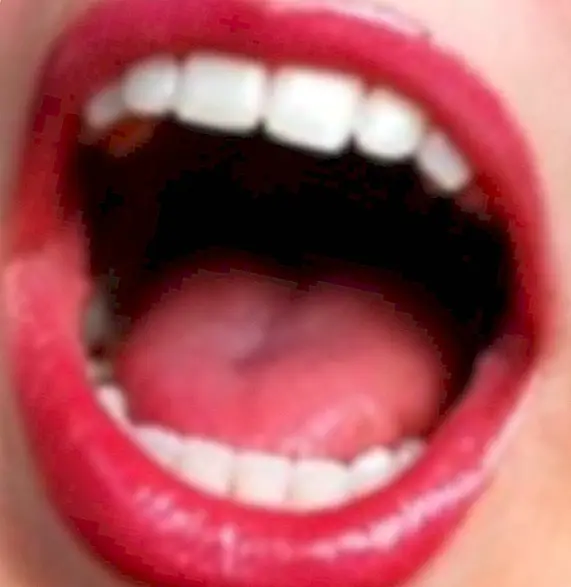How to prevent brain aging and maintain a young mind
Believe it or not, we begin to age at approximately 30 years old, when what is called the genomic process. Not in vain, as has been known recently thanks to the publication of various scientific studies, 75% of the agents that cause aging have to do with both physical and psychological factors.
However, recently a new study carried out by researchers at Duke University in North Carolina, concluded that the aging process would begin a few years earlier, from 26 years of age. To do this, they studied data on the health of about 1,000 people, the qualities were born between 1972 and 1973, and also took into account factors such as blood pressure, metabolism speed and eighteen other physiological markers.
The question, in this specific case, is that these two main or general factors are related to the different and different life habits of each person, while, yes, the remaining 25% has to do with only genetic factors.

However, there is a way to age in a healthy way, through some guidelines or simple actions that help us reduce brain aging.
Why does our brain age? As it does?
If we take into account that our brain is the "most advanced tool we have," citing Cognifit, it is evident that as the years pass from the moment the aging process begins, it will be noticed more or less in our cerebral and mental health. In fact, did you know that it does not develop completely until after youth?
It is more, contrary to what is popularly thought, although the maturation of the brain ends in youth, and from there begins the aging process itself, it is normal that in our brain continue to form new neurons, being able to establish new brain connections. These connections, in fact, are created through the reinforcement of neural connections and training. It is what is known as Neuronal plasticity.
We must bear in mind, first of all, that the brain is not a muscle. That is, it is not composed of muscle cells (myocytes), but by millions of neurons, which are interconnected with each other by dendrites and axons, and that among other important and vital functions, allow to regulate each and every one of the functions not only of our physical body, but also of our mind.
As demonstrated in a study published in the scientific journal Molecular Psychiatry, leading an unhealthy and disorderly life negatively influences not only our own physical health, but also our brain health. In other words, we tend to have an early brain aging, which may influence the state of the brain does not match your chronological age.

Certain chronic diseases that can appear by following an unhealthy lifestyle, negatively influence our brain health. And what are these diseases ?:
- Arterial hypertension:Continuous increase in blood pressure figures, in amounts above the limits considered adequate. Among other aspects, cardiovascular risk increases. It occurs when the systolic pressure is above 139 mmHg, and when the diastolic pressure is greater than 89 mmHg.
- Diabetes:It is a disease in which blood glucose levels are very high, either because the body does not produce insulin capable of helping the glucose we get from food enter the cells (type 1 diabetes), or when the body does not produce it or does not use it properly (type 2 diabetes).
- Cholesterol and high triglycerides:It is known medically as an alteration of the lipids in the blood known as dyslipidemia. It includes both the elevation of cholesterol levels (especially LDL cholesterol), and triglycerides.
How to reduce brain aging and age with health?
To reduce the dreaded brain aging, there are a series of important keys to take into account, which, in a certain aspect, are very easy to follow. Although there is a basic advice that encompasses all others: it is essential to follow a healthy lifestyle, since, as we have briefly mentioned in the previous lines, did you know that if we lead a disorderly and unhealthy life, our brain will age faster?
1. Practice regular physical exercise
The first one is the realization of regular physical activity, which translates into the practice of exercise, if possible, every day between 30 to 60 minutes.And, among other interesting benefits, sports and the practice of physical exercise helps to improve both cognitive and sensory function of our brain, improving in turn the survival of neurons.
In other words: there is less neuronal degeneration, effect or benefit that ultimately results in an effective prevention of neurodegenerative diseases, as for example could be the case of Alzheimer's.

2. Avoid overweight and obesity
The second one is related to the control of excessive caloric intake and maintaining a healthy diet, since, in this way, we manage to avoid such serious health problems as, in the long term, the overweight and the obesity.
In fact, it tends to be very common that when there is excess weight means that the person also tends to be sedentary, which translates to evidently practice little or no physical exercise.
In addition, excess weight can negatively influence the appearance of certain chronic diseases that may also have a direct negative impact on brain health, as we saw, as is the case of high blood pressure and diabetes.
3. Follow a healthy and balanced diet
In addition to avoiding excess weight (that is, both overweight and obesity), and to exercise actively and regularly, it is essential to maintain a healthy and balanced diet based on natural and nutritious foods.
Particularly noteworthy are fresh fruits and vegetables, vegetables, whole grains and nuts (such as almonds and nuts). In addition, we must not forget to opt for healthy fats, especially in omega 3 and omega 6, essential for maintaining good brain health.
4. Practice mental exercises
And, finally, carrying out mental exercises to keep our brain in good condition and, therefore, maintain good mental health.
The best thing is that in addition to reducing brain aging, with these three simple steps to gain memory.
More information | Logopédico Space This article is published only for informative purposes. It can not and should not replace the consultation with a Physician. We advise you to consult your Trusted Doctor.


